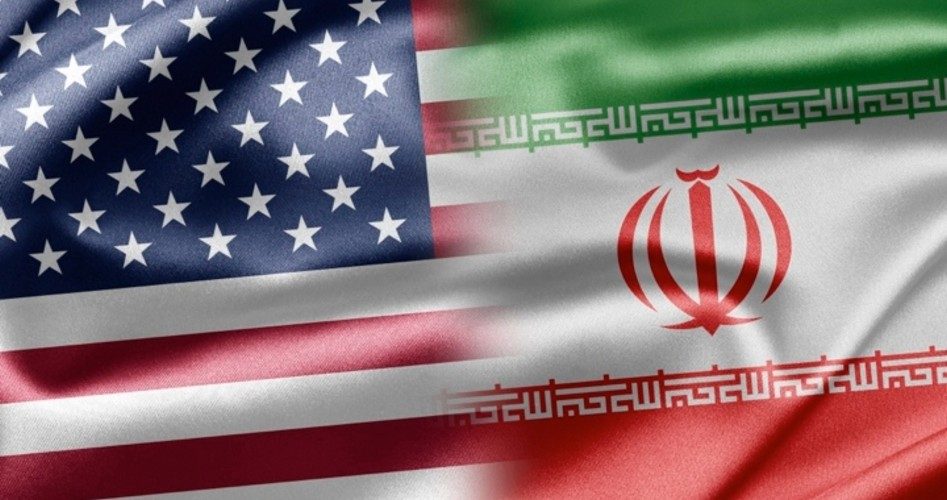
In announcing the imposition of the sanctions against Iran promised back in May, President Trump tweeted on Tuesday: “The Iran sanctions have officially been cast. These are among the most biting sanctions ever imposed, and in November they will ratchet up to yet another level. Anyone doing business with Iran will NOT be doing business with the United States. I am asking for WORLD PEACE, nothing less!”
On Monday the president explained why he was imposing the sanctions, and asking other nations to cooperate: “We urge all nations to take such steps to make clear that the Iranian regime faces a choice: either change its threatening, destabilizing behavior and reintegrate with the global economy, or continue down a path of economic isolation.” He added: “To this day Iran threatens the United States and our allies, undermines the international financial system, and supports terrorism and militant proxies around the world.”
The language in the Executive Order was similarly blunt: The sanctions imposed at midnight Monday seek “to advance the goal of applying financial pressure on the Iranian regime in pursuit of a comprehensive and lasting solution to the full range of threats posed by Iran, including Iran’s proliferation and development of missiles and other … weapons capabilities, its network and campaign of regional aggression, its support for terrorist groups, and the malign activities of the Islamic Revolutionary Guard Corps and its surrogates.”
Trump’s threat dating back to his withdrawal from the so-called Iran nuclear deal has already resulted in numerous companies deciding that it is in their best interests to reduce or eliminate their business connections in Iran. The first indicator came from Iranian Foreign Minister Mohammad Javad Zarif: “The very first sanctions [the U.S.] reimposed have canceled licenses for sales of 200-plus passenger jets.” Other companies, including Total, Siemens, Peugeot, Maersk, and Daimler AG, have ignored urgings by European Union bureaucrats to continue doing business with the Iranian regime and have announced plans to shut down their Iranian businesses. Daimler, the maker of lorries and trucks in Iran, was very clear: “We have ceased our already restricted activities in Iran in accordance with the applicable [U.S.] sanctions.”
Those sanctions specifically target:
• The purchase of United States currency by the Iranian government;
• Iran’s trade in gold and in other precious metals;
• Graphite, aluminum, steel, coal and software used in industrial processes;
• Transactions related to the Iranian currency (the rial);
• Activities relating to Iran’s issuance of sovereign debt; and
• Iran’s automotive sector.
Threats of those sanctions are already being felt inside the Muslim country: Food prices are rising as the value of the rial has fallen by nearly 50 percent since May; unemployment has increased sharply; and massive protests have increased in intensity, with demonstrations in Tehran in June said to be the largest in the nation’s capital in six years.
When the second round of sanctions hits in November, the pressure for “change of behavior” by Iranian leaders will increase sharply. Focused on Iran’s oil exports and its central bank’s operations, those additional sanctions could cut the country’s crude oil exports by a million barrels a day.
Secretary of State Mike Pompeo expressed little hope that the increased sanctions will bring about the desired change in behavior: “We’re hopeful that we can find a way to move forward, but it’s going to require enormous change on the part of the Iranian regime. They’ve got to [start behaving] like a normal country. That’s [all we] ask. It’s pretty simple.”
Simple, perhaps, but not easy. Pompeo has opened the door to negotiations but with the following non-negotiable stipulations: Iran must agree to end all nuclear enrichment and development of nuclear-capable missiles; release all American citizens currently being held against their will in Iran; end all of its support for Hezbollah, Hamas, Islamic Jihad and Houthi militias; and withdraw its forces from Syria.
This, according to an unnamed senior Trump administration official, is not likely to occur: “The Iranian regime [has] demonstrated time and time again that it had no intention to cease its state support for terrorism, foreign proxies and other malign activities … [it] has continued to promote ruthless regimes, destabilize the region and abuse the human rights of its own people.”
As the sanctions ratchet up, and companies now doing business with the terrorist regime decide that it’s too risky financially to continue to do so and terminate their business operations there, the pressure for change in behavior will increase exponentially. But, with history as a guide, that change won’t likely be in the regime’s behavior but in the regime itself.
An Ivy League graduate and former investment advisor, Bob is a regular contributor to The New American magazine and blogs frequently at LightFromTheRight.com, primarily on economics and politics. He can be reached at [email protected].
Related articles:
Trump: I’ll Meet With Iranians
Amid Trump’s War of Words With Iran, Neocons Seek Regime Change



